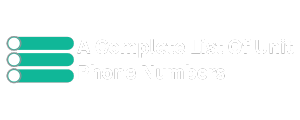A deviated septum is a condition where the cartilage and bone that divide the nasal passages are shifted to one side. This can cause a variety of symptoms including difficulty breathing snoring and nasal congestion. While surgery is often recommended for severe cases of deviated septum there are several nonsurgical options available to help manage symptoms and improve quality of life.
Understanding a Deviated Septum
Before exploring treatment options its important to understand what a deviated septum is and how it can affect your health. A deviated septum can occur at birth or develop over time due to injury or trauma. It can cause one side of the nasal passage to be narrower than the other making it difficult for air to flow freely.
Non Surgical Treatment Options
Nasal Saline Irrigation Rinsing your nasal passages with saline solution can help to clear mucus reduce inflammation and improve airflow. This can be done using a neti pot nasal irrigation bottle or saline spray.
Overthe Counter Nasal
Decongestants Nasal decongestants can temporarily Malaysia WhatsApp Number Data help to reduce nasal congestion and improve breathing. However they should be used in moderation as overuse can lead to rebound congestion.
Corticosteroid Nasal Spray
Corticosteroid nasal sprays can help to reduce inflammation in the nasal passages making it easier to breathe. These medications are often prescribed for chronic nasal congestion.
Antihistamines If allergies are contributing
To your nasal congestion antihistamines can help to reduce allergy symptoms and improve airflow.
Lifestyle Changes
Certain lifestyle changes can also help to manage the symptoms of a deviated septum. These include avoiding irritants like smoke dust and strong odors staying hydrated and managing stress.
Breathing Exercises
Deep breathing exercises can help to improve You can also see how your lung capacity and reduce the impact of a deviated septum on your breathing.
When to Consider Surgery
While nonsurgical treatments can be effective for many people with deviated septums there may be cases where surgery is necessary. If you are experiencing severe symptoms such as difficulty breathing frequent nosebleeds or chronic sinus infections your doctor may recommend a surgical procedure to correct the deviated septum.


